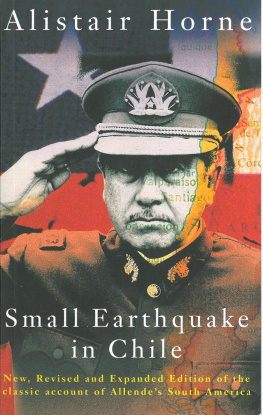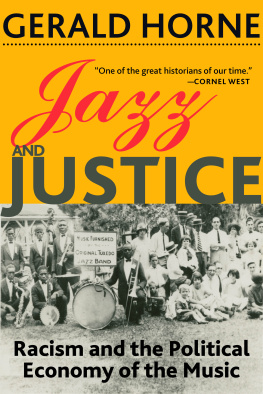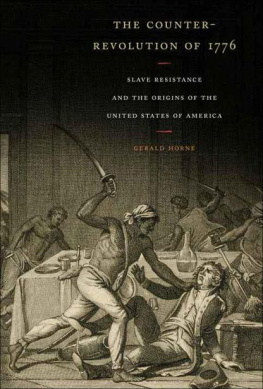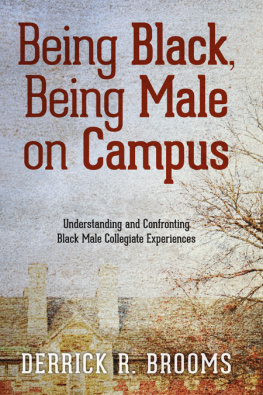Horne - Confronting Black Jacobins
Here you can read online Horne - Confronting Black Jacobins full text of the book (entire story) in english for free. Download pdf and epub, get meaning, cover and reviews about this ebook. year: 2015, publisher: Monthly Review Press, genre: Romance novel. Description of the work, (preface) as well as reviews are available. Best literature library LitArk.com created for fans of good reading and offers a wide selection of genres:
Romance novel
Science fiction
Adventure
Detective
Science
History
Home and family
Prose
Art
Politics
Computer
Non-fiction
Religion
Business
Children
Humor
Choose a favorite category and find really read worthwhile books. Enjoy immersion in the world of imagination, feel the emotions of the characters or learn something new for yourself, make an fascinating discovery.

- Book:Confronting Black Jacobins
- Author:
- Publisher:Monthly Review Press
- Genre:
- Year:2015
- Rating:5 / 5
- Favourites:Add to favourites
- Your mark:
- 100
- 1
- 2
- 3
- 4
- 5
Confronting Black Jacobins: summary, description and annotation
We offer to read an annotation, description, summary or preface (depends on what the author of the book "Confronting Black Jacobins" wrote himself). If you haven't found the necessary information about the book — write in the comments, we will try to find it.
Horne: author's other books
Who wrote Confronting Black Jacobins? Find out the surname, the name of the author of the book and a list of all author's works by series.
Confronting Black Jacobins — read online for free the complete book (whole text) full work
Below is the text of the book, divided by pages. System saving the place of the last page read, allows you to conveniently read the book "Confronting Black Jacobins" online for free, without having to search again every time where you left off. Put a bookmark, and you can go to the page where you finished reading at any time.
Font size:
Interval:
Bookmark:
Confronting Black Jacobins

The United States, the Haitian Revolution, and
the Origins of the Dominican Republic
by GERALD HORNE

Copyright 2015 by Gerald Horne
All Rights Reserved
Library of Congress Cataloging-in-Publication data available from the publisher
Monthly Review Press
146 West 29th Street, Suite 6W
New York, New York 10001
monthlyreview.org
Typeset in Eldorado 10.5/13
5 4 3 2 1
A SPECTER WAS HAUNTING THE SLAVE-HOLDING republicthe specter of an invading army of vengeful Africans.
Lamentable! cried George Washington in response to what he described in 1791 as the unfortunate insurrection of the Negroes in Hispaniola. The president of the fledgling nation was anxious. This is understandable, particularly given the huge population of restive enslaved Africans that inhabited his own nation and the propensity of these bonded workers to unite across borders. Washingon reflected morosely on a spirit of revolt among the Blacks. Where it will stop, he said, possibly considering the tenuous state of his own republic, is difficult to say. The commencement of this rebellion, he added sagely, has been both daring and alarming.
Apparently, the president took seriously the sobering words he had received in August 1791 from the governor of South Carolina, Charles Pinckney, days after the island eruption, who warned nervously about how nearly similar Hispaniola was to his state in terms of barely containing an often unruly African majority. He warned: a day may arrive when mainlanders too would be exposed to the same insurrections as the flame of sedition spread northward.
In 1798 Washingtons successor was told that we are vulnerable in the Southern States to an alarming degree. With just a few ships of war, it was said, the French could in a few days convoy an army of ten thousand blacks and people of colour in vessels seized from our own citizens. They might land on the defenceless parts of South Carolina or Virginia. Under such circumstances, the slaves would instantly join them & greatly increase their force. This was quite possible and whatever is possible the enemy will have the enterprise to attempt.
As things turned out, there was no phantom that was haunting the slave-holding republic. The Haitian Revolution by its very nature proved to be a formidable threat to the entire slave system. When what has been described as the most profitable stretch of real estate on the planet was upended, a devastating blow was landed simultaneously in favor of all those compelled to toil and sweat for a living.
THIS IS A BOOK CONCERNED with relations between the United States and Hispaniola, more specifically, the reaction of Washingtons republic to the revolutionary process in the nation that became Haiti and the splitting of the island in 1844, which led to the formation of the Dominican Republic. As well, this book concludes with the failed attempt by the United States to annex both in the 1870s. This book considers how the island impacted the mainlandand vice versaand, thus, has a particular emphasis on how the population that came to be called African-American responded. This book is not primarily concerned with internal trends on the island nor with the response there to U.S. policy, which will be the subject of a subsequent volume. This book also considers how leading powersFrance, Britain, and Spain most notablysought to take advantage of a slave-holding republic confronted with militant abolitionism.
What came to be called the Haitian Revolution, 17911804, was one of those rare transformative social, political, and economic detonations made all the more remarkable in that it took place in not only the richest and most productive colony of the French Empire but of any empire. But it also implicated the slave-holding republic in that Paris spent heavily in backing North American rebels opposing their seemingly eternal enemy across the channel, which contributed to a crisis in Paris that sparked a transforming revolt in 1789, and this correspondingly contributed mightily to the radicalization of the island. Revolutionary violence in both France and Hispaniola seemed to some U.S. citizens to flow together in a common river of blood that signaled a new departure that could reach the mainland.
This was ironic indeed since North Americanthen U.S.residents were heavily implicated in the dramatic increase of the slave trade to the island, which in the 1780s surpassed the British trade, creating a demographic imbalance favorable to a slave revolt.
In the following pages, I will detail a contradictory skein of events: the recently born United States, birthed not least because of its desire to maintain slavery in the face of abolitionist pressure from London, was then confronted by a threatening slave revolt not far from its shores, which created enormous leverage for Britain to wield against its former colony. There was some sympathy for Paris at this time, especially due to the anti-monarchical trends unleashed there in 1789. At the same time, the United States was coming into sharp conflict with Francethe islands former colonial masterwhich created initial pressure to boost the rebellious Africans to gain leverage against Paris, though this was inimical to the interests of the all-powerful slaving forces in Dixie. This laid the basis for an early dual policy toward the island, initially boostingthen in a continuously malignant pattern undermining the revolutionaries. This also heightened sectional tensions, as the nation hurtled toward civil war. Mercantile interests in New England were increasingly in favor of trade relations with the islandeven during the reign of the man respectfully known as General Toussaintwhile Dixie quaked in its boots at the prospect of armed Africans surging to power on the island.
The United States had not been friendly to free Negros and mulattos, who both fomented and resisted the Haitian Revolution, and was faced with a dilemma when they began arriving on the mainland: should those fleeing revolution be embraced as class comrades or potential subversives who would ally with the enslaved, as some had done on the island? Should the massacre of these gens de couleur on the island in the 1840s, as the D.R. was coming into being, be seen as of no consequence to Washingtonor a fire bell in the night signaling what would next befall those defined as white, even in the United States itself?
Simultaneously, there were some Haitians who were eager to welcome Africans fleeing the mainlandbut others were uneasy about accepting those defined as mulatto in the United States who could then exert weight and influence on the often fragile color equation on the island. The United States had a similar problem: it encouraged the formation of the D.R., not least as a blow against Haiti, but it was also apprehensive about treating a nation with so many of the darker skinned with equalitywhich placed Washington at a disadvantage in its jousting with European competitors, particularly London.
In neighboring Cuba, on the other hand, one group of U.S. nationals brought enchained Africans by the boatload, creating the possibility of creating a Haitian twin with incalculable detriment for the mainlandwhile another group fretted nervously about the same prospect.
Above alland this is a central argument of this workthe Haitian Revolution created a general crisis for the system of slavery that could only be resolved with its collapse. Such reports fueled the buoyancy of the slave-holding republic, which simultaneously fueled an antipathy toward emergent Haiti that determined that its subsequent path would be rocky.
Next pageFont size:
Interval:
Bookmark:
Similar books «Confronting Black Jacobins»
Look at similar books to Confronting Black Jacobins. We have selected literature similar in name and meaning in the hope of providing readers with more options to find new, interesting, not yet read works.
Discussion, reviews of the book Confronting Black Jacobins and just readers' own opinions. Leave your comments, write what you think about the work, its meaning or the main characters. Specify what exactly you liked and what you didn't like, and why you think so.












